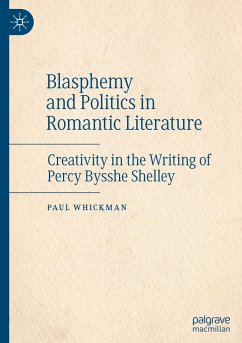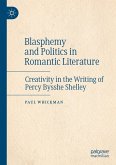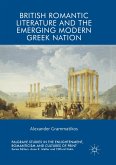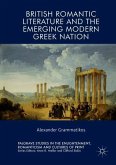This book argues for the importance of blasphemy in shaping the literature and readership of Percy Bysshe Shelley and of the Romantic period more broadly. Not only are perceptions of blasphemy taken to be inextricable from politics, this book also argues for blasphemous 'irreverence' as both inspiring and necessitating new poetic creativity. The book reveals the intersection of blasphemy, censorship and literary property throughout the 'Long Eighteenth Century', attesting to the effect of this connection on Shelley's poetry more specifically. Paul Whickman notes how Shelley's perceived blasphemy determined the nature and readership of his published works through censorship and literary piracy. Simultaneously, Whickman crucially shows that aesthetics, content and the printed form of the physical text are interconnected and that Shelley's political and philosophical views manifest themselves in his writing both formally and thematically.
Bitte wählen Sie Ihr Anliegen aus.
Rechnungen
Retourenschein anfordern
Bestellstatus
Storno








